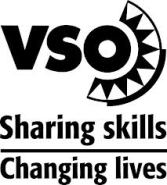Significant developments in volunteering abroad occurred in the spirit of international cooperation and compassion after the Second World War, with the formation of charitable international development assistance organizations [1].
In the UK, Voluntary Services Overseas (VSO) was created in 1958 by Alec Dickson and his wife Mora further to a letter from the Bishop of Portsmouth to the Editor of the Sunday Times (in fact written by Dickson himself)[2] suggesting an organisation to support Commonwealth countries’ urgent appeals for assistance while providing educational experiences for school-leaver boys, offering unskilled help in exchange for basic accommodation and pocket money in “a year between” before university [3]. From 1962, this original “gap” year approach by VSO was phased out, completely by 1980, in preference of a more professional approach recruiting “qualified” volunteers for two year volunteer periods. Indeed, it was then VSO whose “World Wise” (1998) and “Travelling in the Dark” (1999) campaigns began to push for Responsible Tourism, reviewing tour operator tourism to the developing world in response to their surveyed international volunteers’ communities’ major concern [4][5]. VSO has since worked in over 90 countries and has placed over 40,000 volunteers [6]. Nevertheless, like many voluntourism organisations in more recent years, VSO also faced criticism in the past for doing little to fight poverty but much to boost volunteers’ careers [7], but is now actively recruiting over 30% of its volunteers from its international countries of their placement[6].
 VSO’s influence in the United States led to then-Senator John F. Kennedy’s challenge to the students of the University of Michigan to to serve their country in the cause of peace by living and working in developing countries, from which was developed an agency of the federal government devoted to world peace and friendship, the Peace Corps, in 1961[8]. Throughout the 60’s and 70’s volunteerism and study abroad grew in popularity.
VSO’s influence in the United States led to then-Senator John F. Kennedy’s challenge to the students of the University of Michigan to to serve their country in the cause of peace by living and working in developing countries, from which was developed an agency of the federal government devoted to world peace and friendship, the Peace Corps, in 1961[8]. Throughout the 60’s and 70’s volunteerism and study abroad grew in popularity.
 However, it was Earthwatch who devised the concept of a paid-for volunteer placement in 1971, as a response to dwindling government funding yet simultaneous need for scientific information and action. This engaged passionate people willing to financially support and labour-resource conservation research, formed an important bridge between the scientific community and the general public and helped promote public understanding and support of pro-environmental awareness, values, attitudes and behaviours [9] plus growth in ecotourism in the 1980s and Corporate Social Responsibility initiatives in the 1990s.
However, it was Earthwatch who devised the concept of a paid-for volunteer placement in 1971, as a response to dwindling government funding yet simultaneous need for scientific information and action. This engaged passionate people willing to financially support and labour-resource conservation research, formed an important bridge between the scientific community and the general public and helped promote public understanding and support of pro-environmental awareness, values, attitudes and behaviours [9] plus growth in ecotourism in the 1980s and Corporate Social Responsibility initiatives in the 1990s.
It was also in the 1990s that volunteer holidays began to be recognised as a tourism market sector. The term “voluntourism” was coined in 1998 by the Nevada Board of Tourism to attract local residents to support remote rural tourism development[10]. Growth in demand for international placements grew with growing numbers of UK higher education students and the popularity of gap years, met by supply from more commercially-inclined organisations, stepping in where charitable international development organisations only offered long term opportunities.
After the 2001 New York terrorist attacks and the devastation caused by the Southeast Asian Boxing Day tsunami in 2004, people from across the generation span wanted to help familiar tourism destinations with hands-on participation. In the US in 2005, Hurricane Katrina provided an unparalled influence and tipping point, since when over two million people have lent helping hands in rebuilding New Orleans[11].
VSO distanced itself from such voluntourism when in 2007 its UK director Judith Brodie became “increasingly concerned about the number of badly planned and supported schemes that are spurious – ultimately benefiting no one apart from the travel companies that organise them” [12].
***
1. Tomazos, K. (2009) Volunteer Tourism, an ambiguous phenomenon: An analysis of the demand and supply for the volunteer tourism market
2. Martin, S. (1994) The Independent – Obituary: Alec Dickson.
3. Fleming, L., The Bishop of Portsmouth (1958) in The Sunday Times
4.Goodwin, H. & Francis, J. (2003) Ethical and responsible tourism – Consumer Trends in the U.K. Journal of Vacation Marketing, 9 (3) pp.271-284.
5. Goodwin, H. (2011), Taking Responsibility for Tourism. Oxford, UK, Goodfellow Publishers Limited.
6. VSO – Our History VSO – Our History
7. Deer, B. (1998) The Sunday Times – Travelling White
8. Peace Corps (2012) About Us
9. Earthwatch – Our History
10. Clemmons, D. (n.d.) History Of VolunTourism
11. Clemmons, D. (n.d.) Could Voluntourism See Significant Growth During Obama 2.0?
12. Mintel (2009) Tourism and Poverty Alleviation.



